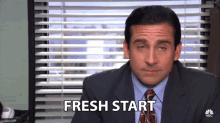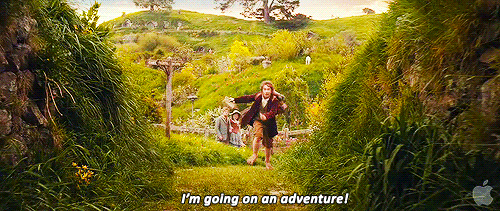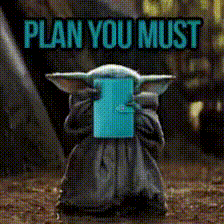Meet Pramod Rao: Founder of Threado (All things Community!) & Ex-VP of Marketing at Zomato 👑
Guess who delivered on their promise? Us us us! 🤗
As part of our ongoing interview series, we recently collaborated with yet another giant in the productivity space. So strap on your mind belts peeps and prepare yourself for the huge wave of insights that are coming your way! 🌊
Today we bring to you, Pramod Rao, a titan of the ever-growing community space. Having revolutionised the marketing sector with Zomato as their VP in marketing, Pramod announced his retirement from that ship after 8 years. Following this successful tenure, Pramod along with his Co-founder, Abhishek Nalin, laid the foundations of their next venture, named Threado - a start-up to help you supercharge your community-led growth. His ideas and philosophies about productivity, building communities and tackling negative thoughts really gave us a wider perspective on things. Here's a brief look at what you can expect from this exclusive interview -
🔀Why Pramod chose to move into the community space
⚔️Which communication platforms - Discord or Slack or others - are best
🔥How Threado increased their newsletter followers from 800 to 2400+ through one post
⚙️His innovative ways to avoid distractions and focus on deep work
🥘Whether he prefers Gulab Jamun or Samosa
So without further ado, let's just jump straight into the talking tunnel!
Part 1: All about Community! ⚒️
Arrowhead - Hello Pramod, thank you so much for agreeing to be a part of our interview series. We recently had an interview with Ruchin Kulkarni of Toplyne so you're our second interviewee. So really excited to have you on 🤩.
Pramod - Thanks guys, thank you so much.
A - We see that your shirt says, “I build communities for a living”.
P - Haha, yeah, we just got our shirts last week. We'll have more of them printed in a week - happy to send one over.
A - Please do! So just to start, can you tell us, in your words, what does Threado do?
P - Threado is a command center for community builders to help them get the best out of their communities on Slack, Discord or any other platform. Think of us as a companion app that gives insights into what's happening in the community and it helps you create your workflows and engage in a more personal way with the community at scale.
We're more like a marketing suite for community-led companies. How Mixpanel or CleverTap are for PLG companies, we are building that for community-based companies.
A - And what inspired you to start building Threado?
P - So Threado was my eighth startup idea 💡. Initially, it started as a forum-based product that was a bootstrapped side project that I was building on for about eight to nine months and I was fortunate enough to meet Abhishek after that who is my Co-founder and CTO of Threado.
The previous ideas I was working on were relevant problems, but I was probably not the relevant founder to tackle those problems. I didn't experience the problems myself. And once the pandemic hit, everything got reset.
I chose this [particular] space because 1) post the pandemic, everything moved online and online communities went on a hyperdrive - platforms like Discord, Telegram and others started to see explosive growth. From a user’s standpoint, people wanted to connect with like-minded people and be part of groups around topics of interest. 2) In a world where products are commoditised, community-led growth was going to play a key differentiator and 3) I could relate to this space deeply from my experience in helping build and scale Zomato’s content and community-led approach to growth during the formative years.
A - Got it. As you mentioned, there are so many different platforms. There's Slack, Discord, Telegram, etc. Do you feel that there's one that's better than the other for certain objectives or stages of a company?
P - Each platform has pros and cons. Slack largely caters to communities around the professional context. So if you're a working professional, you're likely to have Slack as it's easy to connect and be in the community there.
Discord is more of a recent phenomenon. It started off with gaming 🎮, but last 2-3 years it’s become more horizontal. A lot of the developer, gen Z and Web3 communities have also formed on Discord. Then there's a difference between synchronous and asynchronous as well. Slack and Discord are more synchronous communication.
Then you have forums like Discourse and Circle.so that are more asynchronous. The benefit of that is if you want more organized information and also have the ability to connect with members then maybe that's the solution for you.
A - That's a really interesting take. By the way, you released an incredible Notion document recently on community building which we use at Arrowhead as well! So what was the intention behind releasing it?
P - I firmly believe that when you're discovering what problem makes sense to solve, you don't necessarily need to build the product to understand its impact - you can discover that through content as well.
So the first objective was the idea that while it might take time to build out the product that we have in mind, can we add value to community builders without even building or coding anything?
The second objective was to connect with community builders so that we discover their pain points more, keep fine-tuning our hypothesis and make our roadmap better. So we created this 50-point checklist 📋 of what community building should look like, what are the different jobs to be done and what are the best practices. We curated the best apps for the community, the best experts, the best articles, blogs, and packaged everything into one.
It got a crazy response on Product Hunt. We were the number one product of the day and number two of the week.
The 800 sign-ups [we had] on our newsletter just tripled after the launch and suddenly we were at 2500+ sign-ups. And I think [all of this] just gave us the confidence that this approach of adding value to community builders on a consistent basis is the best way to move forward. Today, we’re at 5,500+ sign-ups on our early access waitlist.
A - That's amazing how such a useful piece of document has resulted in so much awareness about the concept of community-led growth. Could you describe the different community initiatives that you have going on?
P - There are a bunch of things that we're doing -
📰Newsletters - We consistently roll out a newsletter every Tuesday. It has these case studies of inspirational stories of community growth, curation of what's happening in the industry and occasionally we also have a free resource that we carry for the community builders.
🧑🤝🧑Product Community - We [recently] launched the community for our customers. The aim was to collaborate with our customers and build the product with their insights in mind.
📦Community Drops - Every month since November 21, we've been putting out these drops with the purpose of understanding what are the pain points that the community builders are facing and can we solve that today without our core product. Could be through content or a small bot like Slack bot.
🐦Twitter - There's a long list of fun things on Twitter - we do these rapid-fires just like your rapid-fire questions.
📹YouTube - We also do a YouTube series with community builders. Every month we host an expert in the community space to get their perspectives, like last month we hosted the CEO of Disclosure.
A - Wow, really appreciate what you guys are doing for the community-led organizations like ourselves! Kudos on that 🙌. By the way, any strategies that you believe have been most effective to kind of building your sign-ups on your newsletter?
P -
Being consistent - that's paramount. Other than that, our community drops have also led to significant jumps and step changes in the sign-ups. Every time we do a drop, [there] is an increase in the numbers.
So the combination of these two and us always being in the space, driving word of mouth, like collaborating with community builders in general, compounds and adds to the sign-ups that we've been getting.
Part 2 - Productivity 101 by Pramod Rao 💻
A - So now we’re going to move a bit more to the productivity side of things. You made the switch from corporate after around ten plus years to now, the startup life. How has that journey turned out for you?
P - Yeah, I don't think it was corporate life for ten or such years. So it was three years of Bain, and then about eight and a half years of Zomato, and then now it's been a couple of years since I started Threado. Bain was really great, but I wanted to explore something new after three years of being there.
Secondly, Zomato had taken birth as a weekend project at Bain and I was fascinated by their journey. I had worked with the Deepinder and Pankaj (Zomato founders) at Bain and was just curious to join them. Glad that they gave me the opportunity! Zomato was crazy, [they have] a startup mentality even today. Although I was heading marketing for the longest time, every year or so, my role would change. I don't think when I joined it I could or any one of us could imagine where we would be several years down the line. Super thankful for the journey and I’m trying to apply a lot of the learnings at Threado.
A - That’s awesome. But now, having your own startup, what are your biggest pain points when it comes to maintaining productivity as a founder? And how is that different from when you were at Zomato?
P - I would say the journey on Zomato was largely focused on getting things done - that would be my core skill. And I was in an ‘execution mode’ all the time. Now I can see in hindsight that it's important to have that skill set, but as a founder, it's also important to zoom out. It's not just here and now. What about six months from now, two years from now - [such] kind of directional decisions need to be taken.
And the second, I would say decision-making is just on overdrive, almost in every space. You just want to get to a decision fast and design systems to help you get there so that you're eliminating all bottlenecks in the company.
Today, I value most being able to zoom out. In my previous role, I would just be like, hey, I'm running against time. I'm not thinking about taking time off or I feel guilty about it. That has changed here.
A - Got it. That's really interesting. So do you have any morning rituals ☀️ now that you've built to help you be more productive?
P - Yeah, so it happened by design. We have two pet dogs - Nama and Laya - and I'm responsible for taking them for a walk in the morning :) So for 30 to 45 minutes in the morning, I don't have my phone and I think that's been a great way to start the day. I have this habit of going through my emails and flagging certain things so that I'm on top of everything. In my previous role, I’d start my day at 6 AM and end the day before hitting bed and it led to burnout[s] in the long run.
But now that there's a routine in the morning, things are more balanced - there’s minimal focus on what's happening for at least the first 2 hours. And then I start my day around 9 AM.
A - And besides this, what are some few secrets or tips that you use to be most productive as a founder?
P - Yeah, so we are remote. The ones in Bangalore meet twice a week. We don't want to be in meetings all the time, so we just have a daily catch-up, most of which we manage asynchronously. I even have different Calendlys for different types of customers. Time apart from this - it's not available to be blocked. As much as I can, I [consciously] avoid booking time slots in my schedule.
Also, ensuring that there [exists] a design where you set yourself up for a time boxing, figuring out the time of the day when you want ‘focus time’, reducing the number of meetings, and not allowing people to own your calendars are all part of it.
[Boxing a time] when am I the most productive and am not allowed for any distractions is super important.
A - That's super helpful. And what are the top tools that you use to be productive?
P - Yeah, there's Slack (remote-work coordination), Calendly and Superhuman. Apart from that, not too many tools.
On the desktop, I have Slack (to interact and be there for our team) and Superhuman open. On the phone, there are no notifications ⛔ apart from WhatsApp for 4-5 key people, including my family, my cofounder and Stripe for revenue notifications. Otherwise, I'm habitually checking [it, about] once or twice an hour. So i’m not getting pulled by others and my head is where it needs to be.
A - That's such a great idea to be able to focus on deep work. Besides the phone, how do you kind of put yourself in the best space to do deep work or focus time? In terms of getting creative ideas and brainstorming sense?
P - So there's no [particular] framework - there are a bunch of things. One obviously [is] taking time to do nothing, right? That could mean just being away from your laptop and phone. I just pick up a book and I usually get some ideas [while reading] which I then note down ✍️.
The other is speaking to other founders and being part of the communities. So we have a mastermind group with five other founders in On Deck Scale. We meet once a month and we spend about 2 hours just discussing where we are in our journeys. We can just be ourselves and share whatever is on our minds. And that also gives ideas of how I can do things differently to be more efficient.
Other than that, I'm a pretty avid Twitter consumer. So whenever I come across any useful threads, I take whatever is the best and [try] to apply it.
Also, every week, our core team [at Threado] - we catch up to share learnings. I have learned a lot from these folks as they bring a different perspective. Having a learning mindset has been helpful.
A - How do you deal with days where you're feeling down or less motivated?
P - I think it's about showing up. What I’ve realised is that if I get into the flow by doing some activity which is around work itself, I don’t get time to worry about the negative feelings.
When you're down and you're overthinking, you're not taking any action. And that goes into a spiral. So going back to spending time with my wife and the dogs and just being with family is something that works for me.
It's a marathon, right? There are going to be ups and downs. So [to tackle this] you either do something, get into the action mode, or take your mind off like go for a drive and come back.
A - Wow, those are two great suggestions. And what tips you would have for new founders? Or maybe even like seasoned founders to be most productive?
P -
Owning your time is super important ⏳. Saying no to a lot of things that come your way.
You're doing things and then when you don the founder hat - when you analyze it from a 35,000 feet viewpoint - you’ll realize that not doing 50% of those things would be completely fine.
Another [tip] is to have a set of founders who you can always connect with and learn from. They might be going through the same problems [and connecting with them] gives a different perspective on how they are handling it. And you can always learn from some of the things that others do, not just from the company building standpoint, but also productivity-wise.
A - It's such a great point on connecting with other founders and learning from them. You’ve also mentioned you are an avid Twitter consumer. With the overflow of startup content on social media, how do you kind of manage your social media?
P - So it’s not empowering at all haha. Post Zomato, I deleted my Twitter, I deleted all my social media and then I got it back on it after that.
What I do is, for example, there's been so much talk of funding winter and fundraising runway in the last two months. And I don't want to see [related] threads again on my timeline. So I have this list of keywords that I mute on Twitter. Even Elon Musk Twitter [is muted].
Also, I don't have the app on my phone. I try to make the login process more difficult - going to the browser and stuff. I still do it quite a few times in the day though.
A - Agreed. Twitter is such a great source of innovation and ideas, but you're right, it can definitely be a bit draining sometimes.
P - Yeah but a lot of serendipitous things that have happened for us in our journey [at Threado] happened because of Twitter. Collaboration with Michael [Novotny] for the no-code drops wouldn't have been possible otherwise. We are also hiring someone in July purely because we saw some of his tweets, reached out to him and now he'll be joining our team. So there definitely are benefits to it, but you should be cognizant of the downside too.
Part 3 - Gotta get some fun, son 😜
A - Right, right, maintaining balance. Okay so let’s jump into the last couple of questions. Outside of your start-up, what do you like doing for fun?
P - So me and my wife like to go hiking with the dogs 🐕. We try to [do it] at least once a month, if not twice. Thankfully, there are sort of these small hills which you can just climb around Bangalore. We keep doing something or the other usually. For the last two years, I've been learning guitar 🎸 - just paused it last month. [Right] now me and my wife are a part of this climate change course.
A - So basically everything haha. I have a guitar I haven’t touched in 2 years so now I’m inspired haha. So we know that you love to read. Any book or podcast that you’d like to recommend?
P - Yes, sure. So currently I'm reading this Rafael Nadal biography 🎾 - have just started. I also like fiction. So I just bought Brave New World, which is an old science fiction [novel] on what a future totalitarian state could look like 🤖. I don't listen to many podcasts, but I think The Knowledge Project is something I keep going back to from time to time.
A - Oh wow! It's so funny, in our last interview, Ruchin also said that his favourite genre is science fiction as well. Could be a founder trend, haha! Anyhow, we'll wrap this interview with a speed round. We'll be asking you a couple of this-or-that questions and you have to say the first thing that comes to your mind.
So the first one is meetings stacked together or dispersed throughout the day?
P - Stacked together.
A - Superpower. Invisibility or the ability to fly?
P - Invisibility.
A - Early Bird or Night Owl?
P - Early Bird.
A - Gulab Jamun or Samosa?
P - Samosa.
A - Text messages or phone calls?
P - Text messages.
A - Works from home or work from office?
P - Work from home.
A - Top Gun or Marvel?
P - Marvel.
A - Twitter or LinkedIn?
P - Twitter.
A - Raising early or bootstrapped till it's required.
P - Bootstrap until it's required.
A - Books or podcasts?
P - Books.
A - There were some interesting answers if we're being honest haha! But this was a superb interview Pramod, thank you so much for connecting with Arrowhead! 🎉
P - Thanks for the invite. Happy to connect at any point!
The end. We hope you had a fun time reading this super-informative and fun conversation with Pramod Rao! Also, what's with founders liking Sci-fi so much? First Ruchin and now Pramod.
Advice of the day - better add these books to your watchlist soon if you wanna be a successful founder someday 😉.
So let's end the proceedings on this note. We've more such exclusive interviews with some amazing personalities lined up in the near future, so stay tuned Arrowheads!
And if you’re really on a roll, check out our last interview with Ruchin Kulkarni, founder of Toplyne (all things Product-led growth)!
Till next time, stay safe, stay productive and just stay! ❤️
















